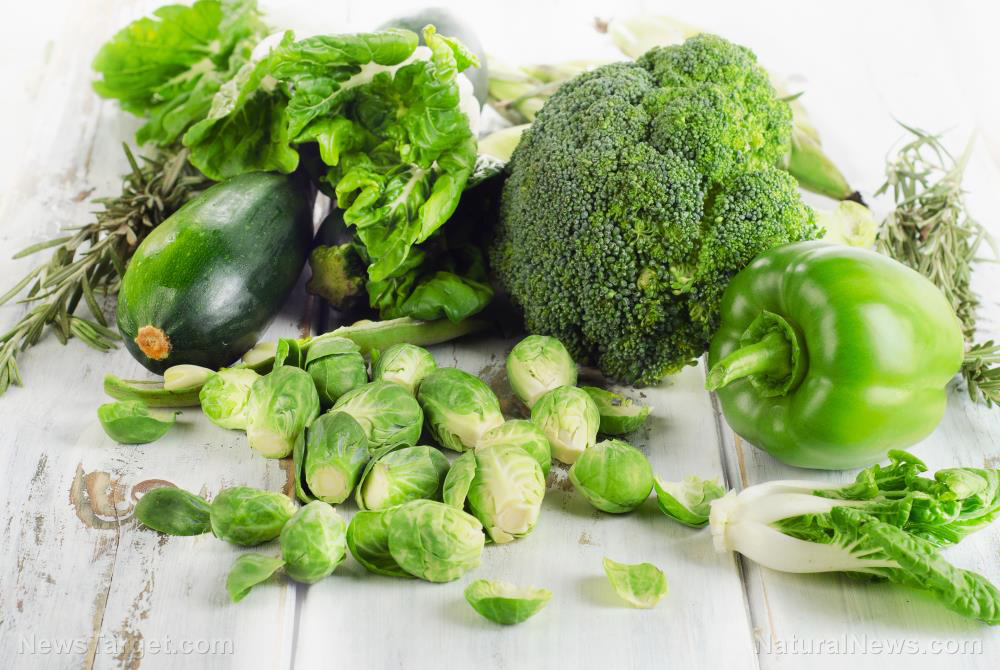Cancer and cruciferous vegetables: This incredible compound in broccoli and kale can stop tumors from growing
11/10/2019 / By Darnel Fernandez

In American households, it’s common to find mothers encouraging their children to eat their greens. Most children and even some adults refuse to eat vegetables, missing out on the many health benefits they can provide. Now, recent evidence suggests a link between cruciferous vegetables – like broccoli and kale – and preventing cancer.
A study published in the journal Science identified a compound, indole-3-carbinol (I3C), found in vegetables such as broccoli, Brussels sprouts, and turnips, which suppressed tumor growth in mouse models of prostate cancer.
Eat your leafy greens to combat cancer
Cancer starts developing with changes in a single cell or even a small group of cells. These cells will start to grow rapidly and begin invading other tissues. The World Health Organization reports that cancer is the second leading cause of death, causing about 9.6 million deaths worldwide.
Previous research has already established that cruciferous vegetables like cabbage, kale, and broccoli have cancer-fighting compounds that can interfere with genes that promote cancer growth. (Related: Cruciferous vegetables proven to prevent breast cancer.)
For the current sturdy, a research team led by Pier Paolo Pandolfi, a Professor of Medicine at Harvard Medical School, explored the functions of PTEN, a phosphatase and tumor-suppressing protein whose activity is the most frequently deleted, mutated, or deactivated in human cancers. According to Pandolfi, this gene is “one of the most important tumor suppressors in the history of cancer genetics.”
Tumors cells are found to exhibit lower levels of PTEN, which raises the question of whether restoring the activity of these genes to their normal levels in cancer cells can unleash their tumor-suppressing capabilities.
To answer this question, the researchers conducted a series of experiments on cancer-prone mice and human cells. Through the results, the researchers discovered that WWP1, an enzyme that promotes cancer growth, played a role in inhibiting the function of PTEN.
The research team, which consisted of members representing institutions in the US, China, Taiwan, India, Australia, and Italy, analyzed the molecular structure and biochemical activity of WWP1 through a computer model to enable them to pinpoint a molecule that could bind the enzyme and block its function. This revealed that the compound I3C did, in fact, neutralize the effects of WWP1 and restored the potent tumor-suppressing abilities of PTEN.
“We found a new important player that drives a pathway critical to the development of cancer, an enzyme that can be inhibited with a natural compound found in broccoli and other cruciferous vegetables,” said Pandolfi. “This pathway emerges not only as a regulator for tumor growth control but also as an Achilles’ heel; we can target with therapeutic options.”
While these findings are pretty exciting for those looking forward to taking the fight against cancer, there is a small caveat before you start stuffing yourself with broccoli. The researchers explained that the dosage used in the experiments on laboratory mice would be equivalent to eating more than six pounds of broccoli a day. Instead, the team seeks to find other ways to use this new knowledge and plans to continue examining how WWP1 works.
“These findings pave the way toward a long-sought tumor suppressor reactivation approach to cancer treatment,” said Pandolfi.
Crucifers, and vegetables in general, are jam-packed with nutrients like dietary fiber, vitamins, minerals, and other phytonutrients, which make them a healthy addition to your diet.
Sources include:
Submit a correction >>
Tagged Under:
This article may contain statements that reflect the opinion of the author
RECENT NEWS & ARTICLES
COPYRIGHT © 2017 SUPER FOODS NEWS





















